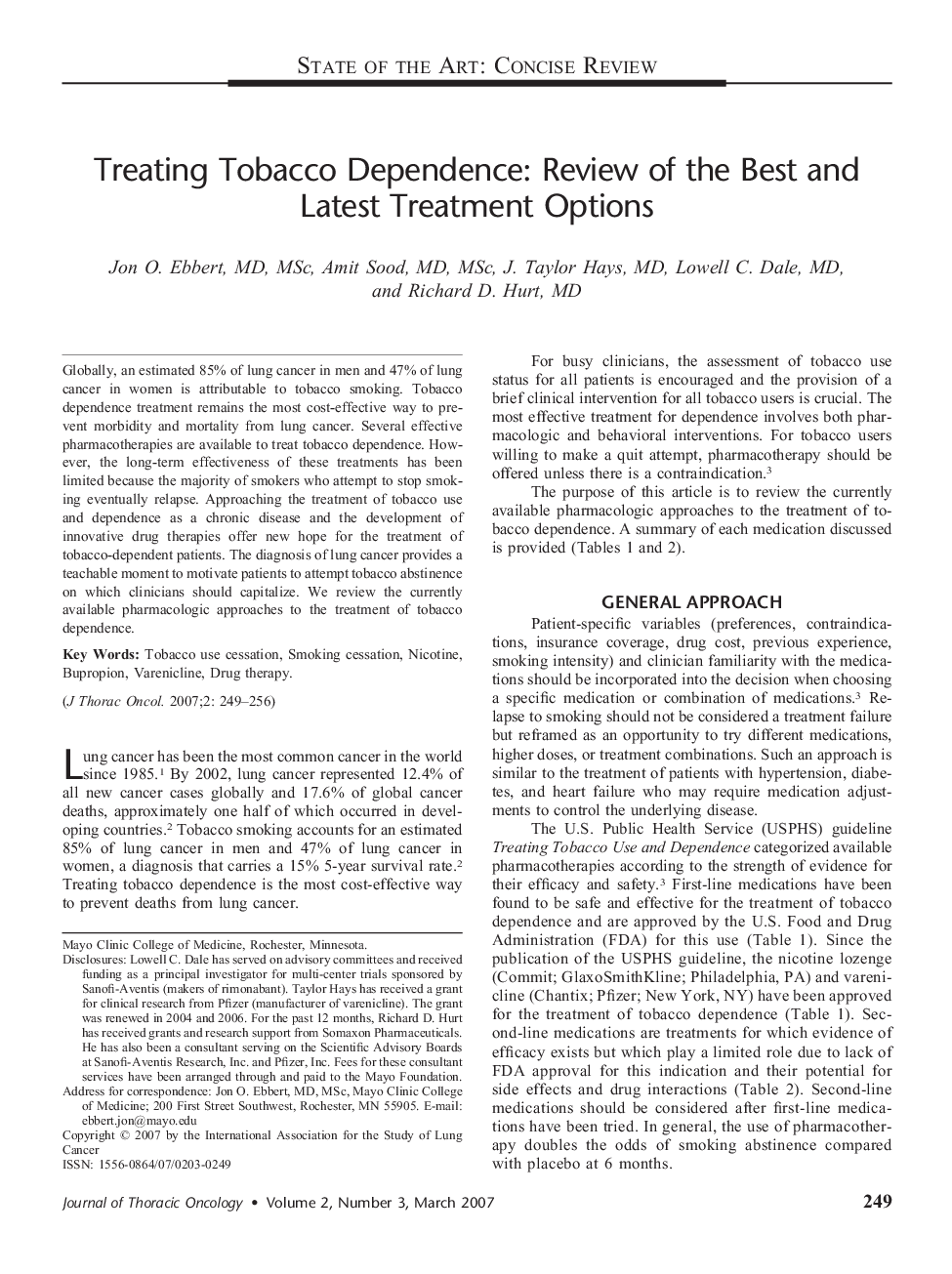| Article ID | Journal | Published Year | Pages | File Type |
|---|---|---|---|---|
| 3992847 | Journal of Thoracic Oncology | 2007 | 8 Pages |
Globally, an estimated 85% of lung cancer in men and 47% of lung cancer in women is attributable to tobacco smoking. Tobacco dependence treatment remains the most cost-effective way to prevent morbidity and mortality from lung cancer. Several effective pharmacotherapies are available to treat tobacco dependence. However, the long-term effectiveness of these treatments has been limited because the majority of smokers who attempt to stop smoking eventually relapse. Approaching the treatment of tobacco use and dependence as a chronic disease and the development of innovative drug therapies offer new hope for the treatment of tobacco-dependent patients. The diagnosis of lung cancer provides a teachable moment to motivate patients to attempt tobacco abstinence on which clinicians should capitalize. We review the currently available pharmacologic approaches to the treatment of tobacco dependence.
